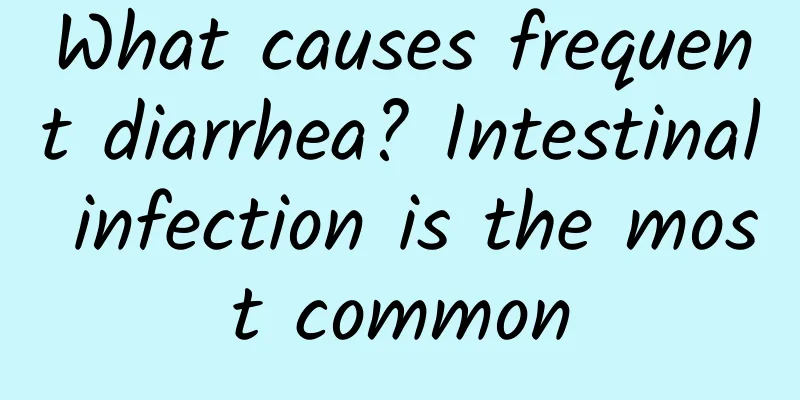Abdominal pain and excessive vaginal discharge during lactation

|
Excessive vaginal discharge and lower abdominal pain during lactation are problems that many mothers experience. Regarding the problem of increased vaginal discharge, it is more likely to be vaginitis. If this problem occurs, it is best to go to the hospital for diagnosis and treatment in time. In daily life, you should also pay attention to personal hygiene and stop sexual intercourse until the inflammation is healed. If the lower abdomen is bloated, it is also related to gynecological inflammation. Therefore, no matter what situation occurs, it must be responded to and handled in a timely manner. 1. What causes excessive vaginal discharge during lactation? Normal vaginal discharge for women is transparent or milky white and odorless. If there is an increase in vaginal discharge, the possibility of vaginitis is relatively high. After this happens, do not have sex for the time being to avoid cross infection. It is best to go to the hospital for a routine leucorrhea test to confirm the type of vaginitis you have and then receive symptomatic treatment. Usually pay more attention to local hygiene. Mainly pure cotton, breathable and loose underwear. 2. Is it normal to have leucorrhea during breastfeeding? It is normal to have leucorrhea during breastfeeding. As long as the leucorrhea has no odor, it is not a big problem. It may be a symptom caused by mild inflammatory stimulation. It is recommended to pay attention to personal hygiene and do not take oral antibiotics for treatment first. In addition, you should also pay attention to actively disinfect your underwear and avoid eating irritating foods. 3. What causes abdominal distension in breastfeeding women? Some women experience ovulation pain, which is related to the stimulation of the pelvic cavity by the follicular fluid and the small amount of bleeding that may occur during ovulation, resulting in lower abdominal pain. However, it is also important to exclude some gynecological diseases such as pelvic inflammation. This condition may also be caused by pelvic inflammatory disease. It is recommended to go to the hospital for a B-ultrasound examination first to find out the cause before treatment. Usually, you should keep the vulva clean and dry, and pay attention to menstrual hygiene. 4. What should I do if I have excessive vaginal discharge and lower abdominal pain during breastfeeding? After a cesarean section, in addition to dealing with general postpartum recovery issues such as breast tenderness, mood changes, vaginal discharge, etc., the mother also needs to deal with the postpartum pain caused by the major abdominal surgery she just underwent. When lower abdominal pain occurs, you must actively seek treatment, choose the right medicine for yourself, take it at regular times and in fixed amounts, and the treatment must be thorough and used according to the course of treatment. |
<<: The dangers of sleeping with leg binding
>>: What diseases can be examined by tumor pathology sections
Recommend
What to do if hemorrhoids hurt
Hemorrhoids are a common anorectal disease, which...
How long does it take to excrete the stone after taking the stone pellets?
Stone-Removing Granules is a common medicine for ...
What is the most effective medicine for cough?
In daily life, we often encounter symptoms of thr...
How to scrape the belly
Everyone knows that scraping is a very traditiona...
Foamy urine
Foamy urine is a symptom that many people have ex...
Is a prolactin-secreting pituitary tumor treatable?
After the occurrence of a prolactin pituitary tum...
What should be paid attention to when treating lumbar vertebrae with small needle knife
Lumbar pain is very troublesome for patients. Peo...
What is the cause of anal swelling and pain? These common causes
Anal distension is a very common disease in the a...
How to treat rhinitis and pharyngitis? Why should we treat rhinitis first when treating pharyngitis?
The climate in autumn is relatively dry, and the ...
What is the cause of watery diarrhea?
Many people are prone to diarrhea in normal times...
What are the effects and functions of red peony root?
Red peony root can clear away heat and cool blood...
The difference between Ermiao Pills and Simiao Pills
In traditional Chinese medicine, adding other Chi...
What to do if you have spleen and kidney deficiency. Dietary adjustment is more effective
Traditional Chinese medicine believes that the ki...
What Chinese medicine is best for nourishing the lungs?
With the improvement of living standards, people ...
Do you know the best time for cupping?
Generally speaking, the time from morning to noon...









